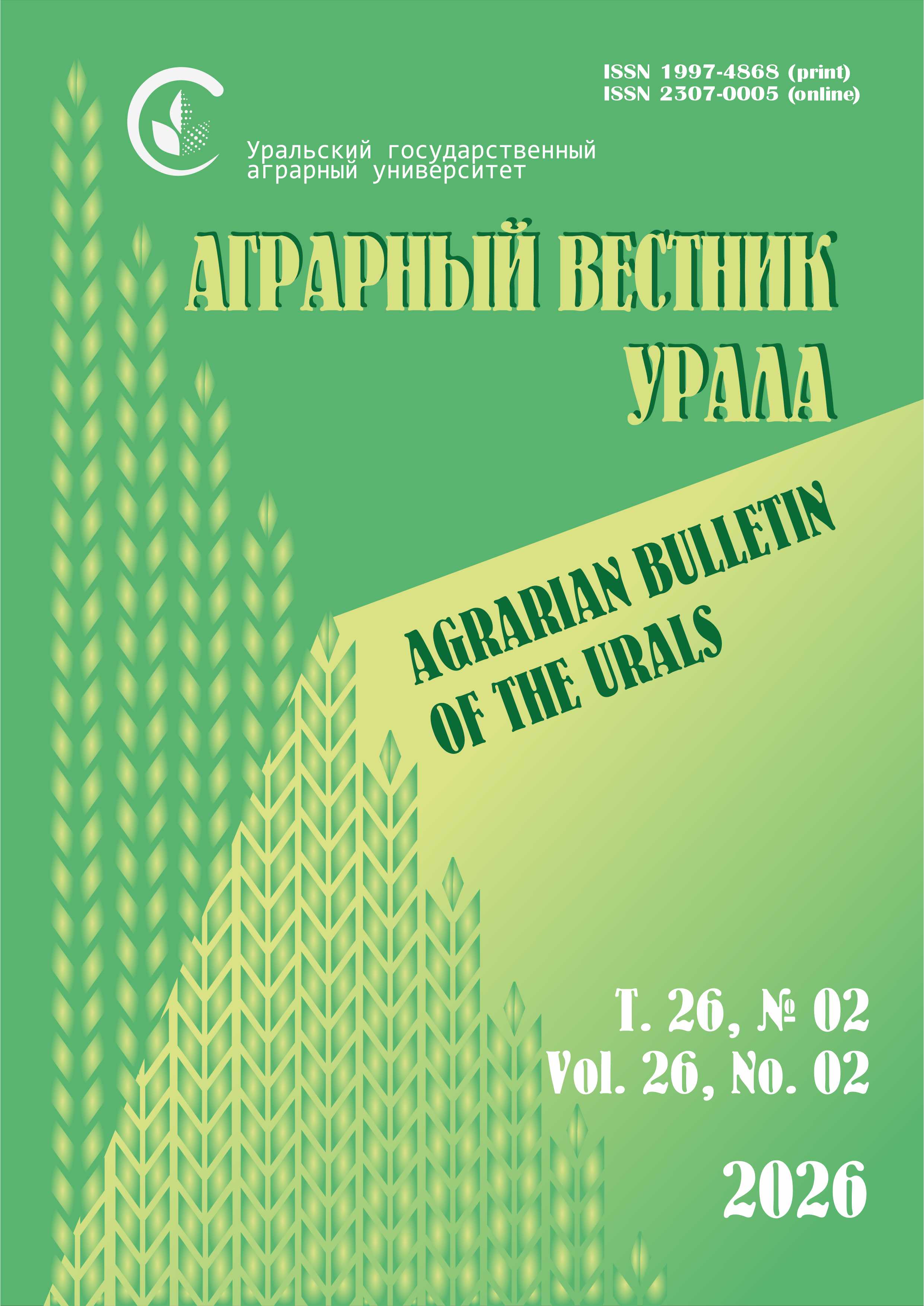N. Yu. Zubarev1 , L. V. Glezman2, S. S. Fedoseeva2 , Yu. N. Zubarev3
1 Perm State University, Perm, Russia
2 Institute of Economics of the Ural Branch of the Russian Academy of Sciences, Perm branch, Perm, Russia
3 Perm State Agrarian and Technological University named after academician D. N. Pryanishnikov, Perm, Russia
E-mail: This email address is being protected from spambots. You need JavaScript enabled to view it.
Volume 25 No. 5
Date of paper submission: 03.03.2025, date of review: 27.03.2025, date of acceptance: 03.04.2025.
Published: 05/31/2025
Abstract. The article is devoted to the study of the decoupling effect as a tool for diagnosing the effectiveness of resource management in the context of the intensification of agro-industrial production according to the doctrine of food security, import substitution policy and the achievement of technological sovereignty in the current geopolitical situation. The aim is to diagnose the decoupling effect in order to assess the impact of agricultural production growth on the environmental impact of the region and to identify opportunities and prospects for leveling the contradictions between economic growth and reducing the burden on the environment. Objectives: to form a system of baseline indicators of agricultural production and its impact on the environment in the region; to calculate the decoupling effect using various methods; based on the ecological and economic interpretation of the results, to determine the possibilities and prospects for leveling the contradictions between economic growth and reducing the burden on the environment. Methods: generalization, analysis, synthesis, systematization and analytical processing of data, correlation analysis and graphical visualization. Scientific novelty lies in the development of a methodology for assessing the relationship between the dynamics of agricultural production and the environmental impact of the region, based on the synthesis of key methods for diagnosing the decoupling effect. The results of the ecological and economic analysis have shown that in the agro-industrial complex of the Perm Krai, the decoupling effect for the period under review is manifested in relation to the consumption of land resources. The decoupling effect was also revealed in terms of water resources consumption. This made it possible to identify opportunities and prospects for leveling the contradictions between economic growth and reducing the burden on the environment of the region. The prospects for further research are related to a detailed study of the aspects of ecological and economic development and the diagnosis of the decoupling effect in the agro-industrial complexes of the regions of the Russian Federation.
Keywords: decoupling, agro-industrial complex of the region, environmental impact, agricultural production, economic growth, environment Acknowledgements. The study was carried out in accordance with the Research Plan of the Institute of Economics of the Ural Branch of the Russian Academy of Sciences.
For citation: Zubarev N. Yu., Glezman L. V., Fedoseeva S. S., Zubarev Yu. N. Diagnostics of the decoupling effect in the agro-industrial complex of the region (on the example of the Perm Krai). Agrarian Bulletin of the Urals. 2025; 25 (05): 806‒818. https://doi.org/10.32417/1997-4868-2025-25-05-806-818 (In Russ.)
Download the full text of the article












